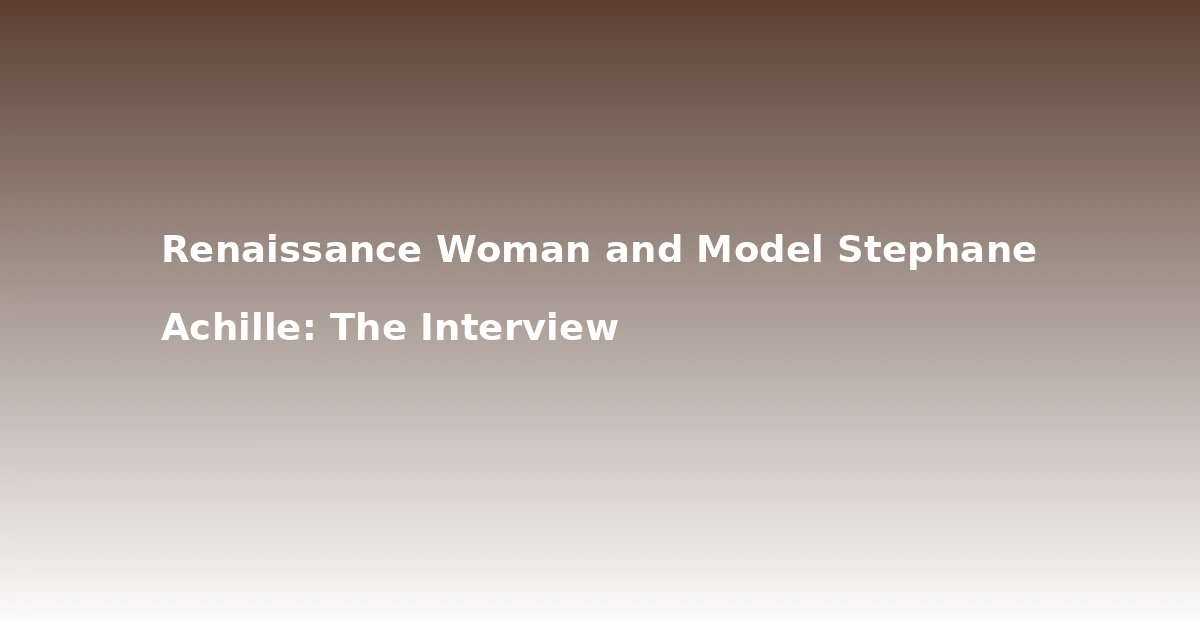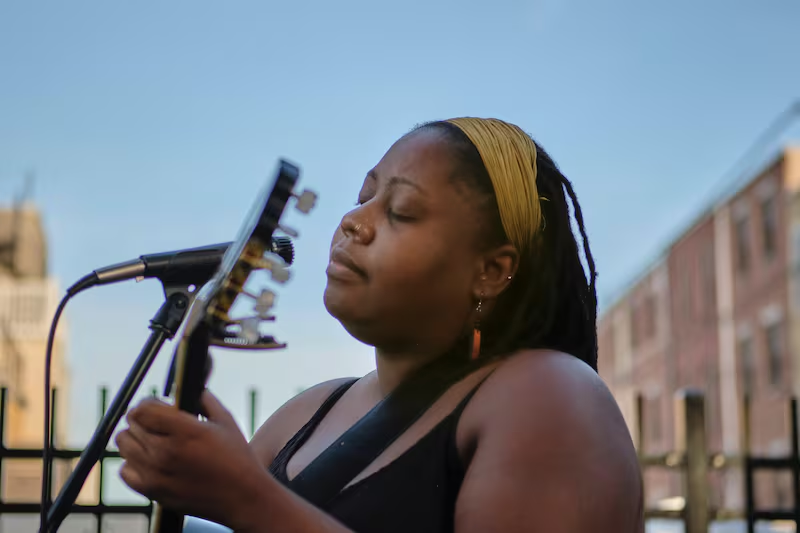Should students in Haiti be taught in three Languages? The woman behind The School of Choice—Ecole de Choix—in Mirebalais seems to think so.
School of Choice—Ecole de Choix—the brainchild of DePaul University business school professor and entrepreneur Dr. Laura Pincus Hartman—is Haiti’s biggest educational experiment to date. Located in Mirebalais, the school has a trilingual curriculum, a first for rural Haiti.
Children attend free of charge and are served free hot meals and snacks. The school’s classrooms are equipped with laptops and computers. Naturally, there are some schools in Port-au-Prince that have a bilingual curriculum, and in recent decades, Haiti’s schools has been less reticent about teaching Kreyòl as a language in the classroom.
Yet, most schools are loathe to accept Kreyòl and making it an integral part of their curriculum. What’s more, bilingual and nearly trilingual schools tend to be an educational perk of the mostly well-off.
Mirebalais’s School of Choice—Ecole de Choix makes it possible for children of small income or no income parents to have access to the same quality of education as their wealthier counterparts. The school has 180 students on its roster, and for now, goes up to the 6th grade. Its faculty was plucked mostly from the Haitian Dyaspora, another mark of distinction from other schools in Haiti’s countryside.
Plas Ti Moun, an after school program, is also in place. Joseph Léonard, a fourth grade teacher at the school, remains hopeful about its future. “We can definitely make a change in the way Haitian Children—the poorest ones above all—have been educated [since] centuries ago,” he contends. “This change should be made by providing our children with the very best education through choices they make so that they become true leaders and spread the light over their community and make life worth living in it.”
The school is indeed an experiment, but it is certainly past the trial phase. Dr. Pincus Hartman, its founder, is no doubt hoping that all continues to go well. She freely discussed the school with Kreyolicious.
Q & A
the name of the school makes me think of a charter school for some reason. Is that the sort of structure the school is built on?
In fact, the name comes from the concept that education provides Choices. In Haiti, as is the case in many–all—developing economies throughout the world, many people living in poverty are denied the choices and autonomy to which others have access simply because they do not have access to education. So, we are striving to provide access—not only to education—but to a quality education that will help to develop leadership capacity, for these children, and for Haiti.
How are the children who attend the school selected? Are they from the city of Mirebalais? Or from all over Haiti?
First, I neglected to mention that we do not charge for the school, number one.
We do ask parents if they would please volunteer their time, which is exceptionally valuable to us, since we do not have any institutional funding to speak of. So, their contributions are really worthwhile to us. And at the same time allows them to know that— while they do not have money—they do have something of value to contribute.
Second, to answer your question, we built the school for the specific purpose of serving the children of families living in the most extreme conditions of poverty, so we worked with Fonkoze—the largest alternative bank in Haiti, serving people living in poverty—to identify that particular group of people in the Central Plateau—Mirebalais. However, of course, because the children walk to school, we were limited geographically; but we just last month got a school bus contributed. Well, we have to pay for transport, so we are boating it across and, when it gets there, we will be able to help these small children with their very long walk to school.
We serve 180 children in 6 grades, by the way. I would never refer to our school as a “charity.” That is because we are a partner, an investment, for people looking for a positive place to contribute their money. These children work very hard and, if someone wishes to contribute their money, these children provide an extraordinary return on investment, if you run the numbers—I truly believe that they can change the face of Haiti’s economy in the future.
Okay, now in terms of the trilingual aspect…
Well—in Haiti—people living in poverty are raised with Haitian Kreyòl. If they have access to school, they often are taught only in Kreyòl. and only have access to school briefly.
As you know, exams in Haiti are in French so these students often are excluded from that element of the educational process. Even if they continue, rural school teachers often have only a small amount of education themselves—sometimes only up to 6th grade or so, sometimes a bit more. So these students are hindered in that regard.
If they get through that level, some of the most prestigious jobs in Haiti require English. So, we begin right from the very start—in pre-Kindergarten by teaching all three languages. Haitian Kreyòl—written and spoken—French and English—and continue through all of our grades. At assembly in the morning, our students run it and they conduct it in all three languages—the older students modelling for the younger students, demonstrating responsibility.
Do you see Ecole de Choix, as being a sort of step into educational reform in Haiti?
Absolutely. We are hoping that Choix can serve as a model that others can follow—we are just the first.
Now in terms of the faculty. You’ve said that they are all Haitian. Was this aspect important to you?
Do you think it’s vital to the success of the school?
We do. We believe that it is vital to the students’ sense of dignity—as Haitians—self-esteem and leadership in the future. If all they ever saw were non-Haitian leadership models, they would never learn that they had the capacity to serve in these roles, themselves, right?
Right. When you were selecting these teachers and faculty members, were there certain traits that you looked for? Obviously, there are going to be those who are out of touch with Haiti’s current systems, some of the most experienced may have left Haiti years, even decades before.
Oh, of course.
We were looking for teachers who understood the core values of the school. Please understand, we are not going into Mirebalais and imposing “U.S” values, or “Laura” values. These are what we decided were “Choix” values.
To be perfectly honest, though they are based in the educational teachings of a progressive education academic named John Dewey—long gone—they are really grounded in the education I had in school and that continues at a small school in Chicago called Francis W. Parker. Highly respected, progressive, but very much based in the concept that students children should be respected, have autonomy and be taught to make their own choices since, as leaders, they had better know how to make effective, ethical and responsible choices.
So, when we were looking for teachers, we very much wanted Haitian teachers, leaders, who understood the value and dignity inherent in all children, who listened to children, who were willing to give up the classroom a bit to these children—that is who were not going to get into a power struggle. No physical punishment allowed.
Can you tell us about the Plas ti Moun—the youth center-style program that the school has?
Certainly. It has evolved a little since we began our plans. It started because of the First Lady’s overall plan and we had visions of serving the younger children in the community.
Now, however, we had to modify it—because of our own financial constraints as well as staffing—to be limited to a more periodic offering, though we still have visions of a more standard program. Currently, we had funding from the American Jewish Joint Distribution Committee to build a playground—along with a library and security fence. We use the playground to offer after-school sports for our students and siblings. Over the summer, we were able to offer a mentoring program that paired local community members enrolled in an ESL-program we offered with our Choix students to allow for remedial reading support so we were thrilled by that joint effort and there were some social events that came from that, too.
Some would argue that most of Haiti’s best homegrown students, leave almost immediately for overseas. One of the missions of Ecole de Choix is to provide the best education for students for Haiti’s future. Do you think they will be moved to provide for Haiti’s future, or do you think that like generations before them, they will take their talents and expertise elsewhere?
Your readers will likely roll their eyes at me for being naive or innocent, no matter what answer I offer, but I shall do my best to respond, nonetheless.
Here is our expectation and how we are hoping to effect this result. These students—these 180 students—will continue with Choix through their high school senior year. We are not currently accepting additional students because we can barely support these students—I wake each morning and sleep each night trying to figure out ways to find support for the school.
So, we will not take on other students unless we can adequately support those we have currently. So, we have these 6 grades, and they shall be with us for years. We are teaching them, from the moment they walk into our classrooms that education is both a right and a responsibility.
even now, as they are students at Choix, we challenge them to give back to their communities—so they understand that, even when they think they have very little, they always have something to give—and giving is a good thing. We are instilling in them a culture of generosity, a culture of contribution, a culture of participation and—most of all—a belief that they can have an impact on their world. We believe that, if they truly believe that they can make a difference, and we offer them the skills with which they have the ability to make a difference, then they will feel that they can stay and make Haiti the best possible Haiti that Haiti can be.
At which point did it occur to you that it would be a good idea to start a school like Ecole de Choix in Haiti?
Well, it was when all of these people were in Mirebalais and had nowhere to go to school, because there was this enormous influx of refugees after the earthquake—tens of thousands—and there was not enough food, certainly no jobs, and absolutely no school for the newcomers. We had to do something and, education is the key to the treasure chest for people living in poverty. You cannot just give people money because, once money is spent, there is no way to get more. But if you give them an education, they can change everything.
Are you pleased with how things are progressing with Ecole de Choix thus far?
The students have demonstrated more progress that I ever could have imagined or would have been willing to hope. The 3rd and 4th graders—where we focused on English and French with greatest effort to prepare them for exams—are speaking beautifully and just showing magnificent progress and NGO partners have been exceptionally supportive—Direct Relief International, MedShare, others. The part that has really been the most challenging has been working with the large funding organizations or large foundations since they often look to quantity results—how many schools can they build or how many students can they impact.
I am working to have a significant impact on 180 children, working with them toward a very high quality education, and meeting all sorts of hurdles. For instance, it took us about 4 months just to get fence and academic material into the country. But we are doing it…and again, on a very high academic level of quality, and we are showing that it is possible—and these children have capacity.
We are demonstrating that. These children will continue and perform, and will be leaders in Haiti, they want to—just talk to them. That is a very responsible thing to be doing, and something that I wish I could get others to help me to support.
By the way, we are partnering with the publisher Deschamps [a printer and book publisher based in Haiti] to beta-test their online curriculum and with others to demonstrate how to use technology in the classroom, since our campus is wired, and so on. We do try to be a model.
Speaking of the publisher, how does the school select books to accompany its curriculum? I imagine it has been challenging.
Well, not too much. there are only two publishers for the Haitian curriculum—Deschamps and Educavision.
Then we have been working with Pearson for science and math, and are working with for our French books. We have also had books contributed for our library from the Chicago Public Library and the Town School in San Francisco.
Earlier you mentioned volunteerism with the parents. What specific aspects of the school are they involved in?
They staff the playground, help with snack and lunch service, walking to the bathrooms for the younger children, grounds, and so on.
I have three more questions, and also I’d like to know what is the annual budget for the school?
Well, that is always the kicker. Let me preface it by saying that people hear all about the school, say ‘Gee, that sounds so great, tremendously valuable, aren’t you doing such a great job”, then they ask the budget and their eyes go wide and they just cannot believe it. But, truly, things cost money for goodness sake.
How do they think we pay for these things? First, as a decent human being, not to mention a business ethics professor, I just could not sleep at night if we did not pay a living wage to these teachers, right? Besides, they are all degreed and have their teaching certifications.
so, they could easily get find jobs elsewhere, but they do this because they care about this situation. So we have to pay them. But the community got very upset with us in the beginning because they thought we were paying too much.
I keep explaining, these are people with university graduate degrees, certifications; they all are required to speak three languages—that is why they are paid so much more than others. I do not want to go into specifics about how much each position is paid because that just reopens the subject in the community, but it was an issue. So we had to pay an amount that still seems way too high for those community members and still seems too low in my book.
For the rest of the budget, we pay our principal a competitive salary for a professional executive who relocated from her position in Miami. Then we have all of our curriculum, for which we have to pay triple—Kreyòl, English and French— electricity, computers, the tech lab, water and plumbing, all maintenance, the rest of our staff—we have about 20 more—all the school snacks and lunches—one of our largest expenses. So the whole thing comes out to between $225-250,000 per year, depending on extraordinary expenses, and could go up to $300,000 depending.
And the kids involved too in some fort of volunteerism? In some kind of giving back to the community or other?
We are starting that this fall, for each grade level.
Do you think expansion to other parts of Haiti is a future possibility?
At the moment, I am focusing on making sure that we can fund future years for these particular children. If we can get that established, we would welcome the opportunity to expand. But, I would suggest that perhaps others could work with us to expand in other regions.
Trying to get Choix sustainable seems to be a bit of an overwhelming responsibility at the moment! But one I am willing to continue.
The school has so many partners, including Zynga, Samasource, Intel. Intel, and countless other stakeholders and sponsors.
Those are just several of many Friends of Choix. Zynga is a past partner, to be clear—I try to make this clear since people presume that we are just fine financially if they see that Zynga is a partner.
Zynga was involved in funding the original construction of the buildings through funds its players contributed right after the earthquake. Since that time, Zynga—Zynga.org, to be exact, its charitable unit—has offered a variety of other opportunities in its games and does not currently contribute to Choix. We are so very grateful to Zynga for our incubation.
There are just a lot of organizations with whom we have partnered and continue. Intel for instance, is a great partner; they do not contribute goods but instead send a team from the Intel education service corps to Choix twice a year to engage in training and education. We love having them.
The National association of black police officers sends back packs, and I could go on. I mean, even Swiftwick, a sock company sends socks several times a year, but those items do not pay staff salaries so we still need [money] no replacement for [monetary] contributions, you know?
Last Updated on December 2, 2025 by kreyolicious



